He was supposed to calm NZ AUKUS doubts. Instead Winston Peters threw a grenade
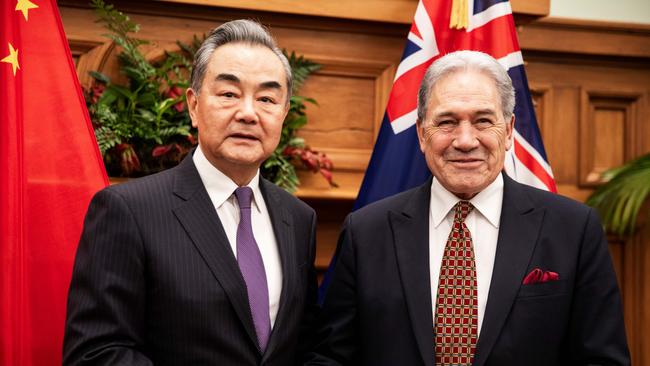
The New Zealand government wanted Peters, who is also foreign minister, to momentarily smother a political hand grenade on controversial AUKUS membership as public support for its overall performance tanks in the polls.
And Peter arguably did that very thing, only to almost immediately pull the pin on another grenade and lob it into the lap of Carr – who quickly returned fire and thus inflamed the very issue the government wanted Peters to dampen.
Less than 24 hours after Peters delivered a major foreign policy speech on Wednesday evening, where he was seemingly successful in taking some of the heat out of the generally negative debate over NZ joining Pillar Two of AUKUS – which focuses on technology and information-sharing – the veteran minister hit out at Carr for his public criticism of the trilateral security partnership.
In his speech, Peters issued temperate criticism of the previous New Zealand Labour Party leadership’s more benign geopolitical posture and the current party’s new found AUKUS scepticism.
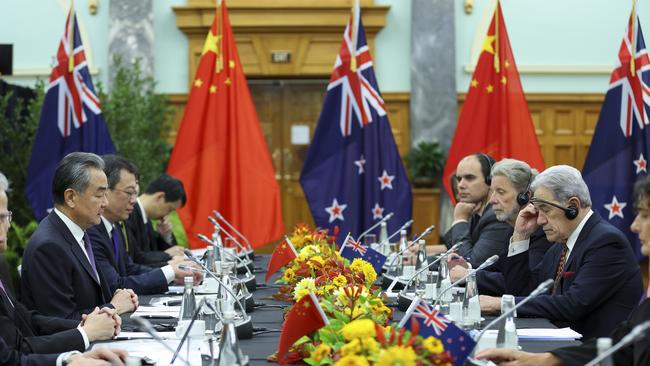
But in an interview Thursday morning with the national broadcaster RNZ, Peters aggressively targeted Carr for previously criticising AUKUS as “fragrant, methane wrapped bullshit”.
Peters – a famous political maverick and the long-time critic of China – furiously called the former Labor minister “nothing more than a Chinese puppet,” only for Carr to launch defamation action.
The Opposition Labour Party says Peters has embarrassed his country and leader Chris Hipkins urged prime minister Christopher Luxon to sack him – a call almost certain to go unheeded as it would likely spell the end of the coalition government.
In his Wednesday night speech, Peters was expected by some to validate New Zealand’s potential role in AUKUS, repeating the sentiment of last month’s joint statement between Peters and US Secretary of State Antony Blinken, that there are “powerful reasons” for New Zealand to engage with AUKUS “as and when all parties deem it appropriate.”
All three NZ coalition partners have leaned heavily into supporting traditional partnerships in a geopolitical environment that has become more fragile and adversarial.
But it now seems the coalition government has become more lukewarm over the pact, possibly due to sinking poll numbers.
In his address, Peters was far less positive about New Zealand’s participation in the pact. He noted that New Zealand is a long way from making any decision to sign up to the agreement. Heading off criticism of back-pedalling and course correction, Peters resolved that his position was not changed, and he reiterated that no decision could be expected until New Zealand is formally invited to join and knows precisely what membership means for the country.
But the New Zealand government may well be accused of practising poll-driven foreign policy for its fresh tepidness.
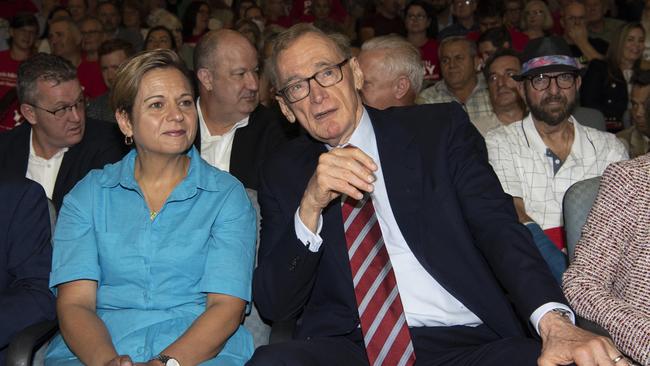
The latest polls published this week show that if an election were held now, the government would lose power and in its place a Labour-led left wing bloc could form a governing majority.
The polling shows how fast the New Zealand public has soured on the coalition government, after just 158 days in office following a convincing win by the country’s centre-right parties in the last year’s October 14 general election.
In the wake of after these jarring results, the last thing National and its governing partners – ACT and NZ First – needed was to further embed public doubt in their performance by committing to a course of action they will know is controversial, and likely to invite more public scepticism and opposition.
Membership could serve up serious political consequences for the New Zealand government, depending on who best controls the public narrative – opponents or advocates.
Opponents of New Zealand AUKUS membership say it will represent a clear loss of autonomy and will undermine the country’s cherished independent foreign policy, in practice and principle. They often frame AUKUS – inaccurately – as a formal alliance and a nuclear club solely constructed to contain a regionally ambitious China.
Many believe Wellington would be foolhardy to invite a hefty economic price from Beijing at the expense of membership especially when New Zealand’s economy needs more resilience.
Should all or part of this opposition messaging form the prevailing narrative, then voters won’t be at all receptive to a New Zealand role in AUKUS and could punish the government for it.
This would strengthen what appears to be growing head winds facing Luxon’s administration as breeze could be shifting to the back of the opposition Left.
The Left’s rise in support appears to be more by default than design and effort, as in large part the coalition government has orchestrated its own bad polling.
The scope and alacrity of its initial policy agenda – led by spending cuts and controversial legislation repeals – were seen by many as blunt policy instruments when something more surgical might have been more palatable to the public.
Voters also likely baulked at the level of open internal discord and ill-discipline among the coalition’s upper ranks, with the moniker of “coalition of chaos” often evoked by Hipkins.
In New Zealand, matters of foreign policy rarely influence voting preferences in general elections. However, given its gravity and public profile, the coalition government signing up to AUKUS might just change this.
Naturally, Luxon won’t want membership to strengthen current headwinds facing his government.
Controlling the political and public narrative may well be at heart of the New Zealand’s thinking on AUKUS. And with Luxon especially sensitive to how membership is received by voters, Peters’ inflammatory and unnecessary duel with Carr won’t aid the coalition government’s desire to lower the temperature on the matter.

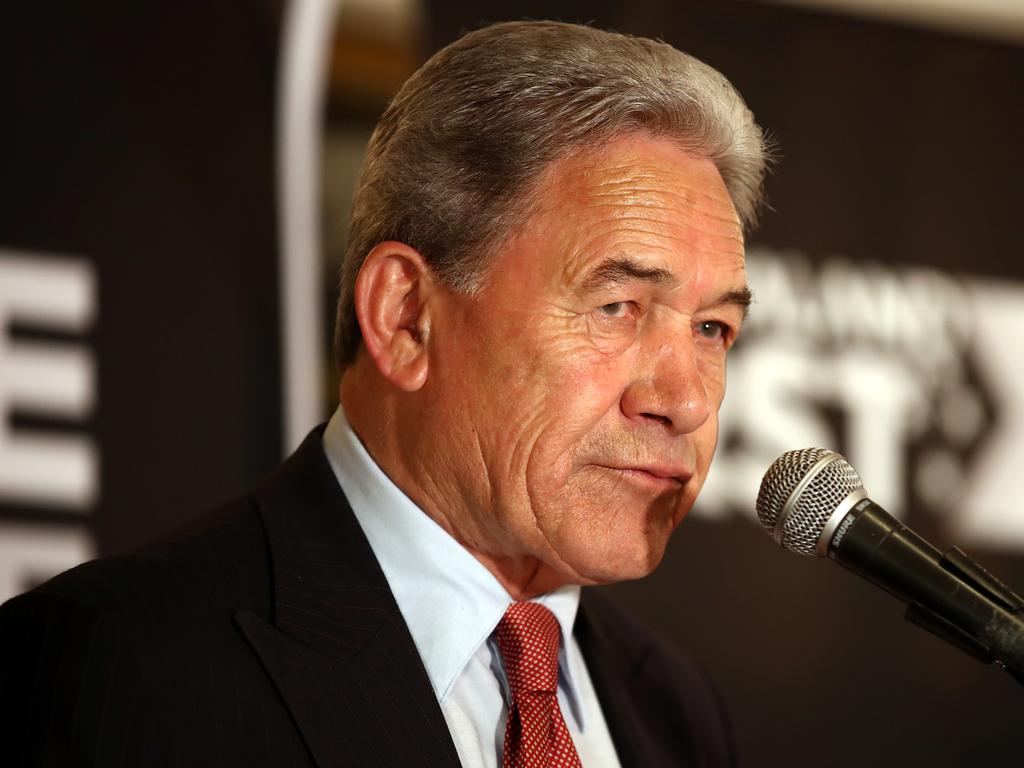
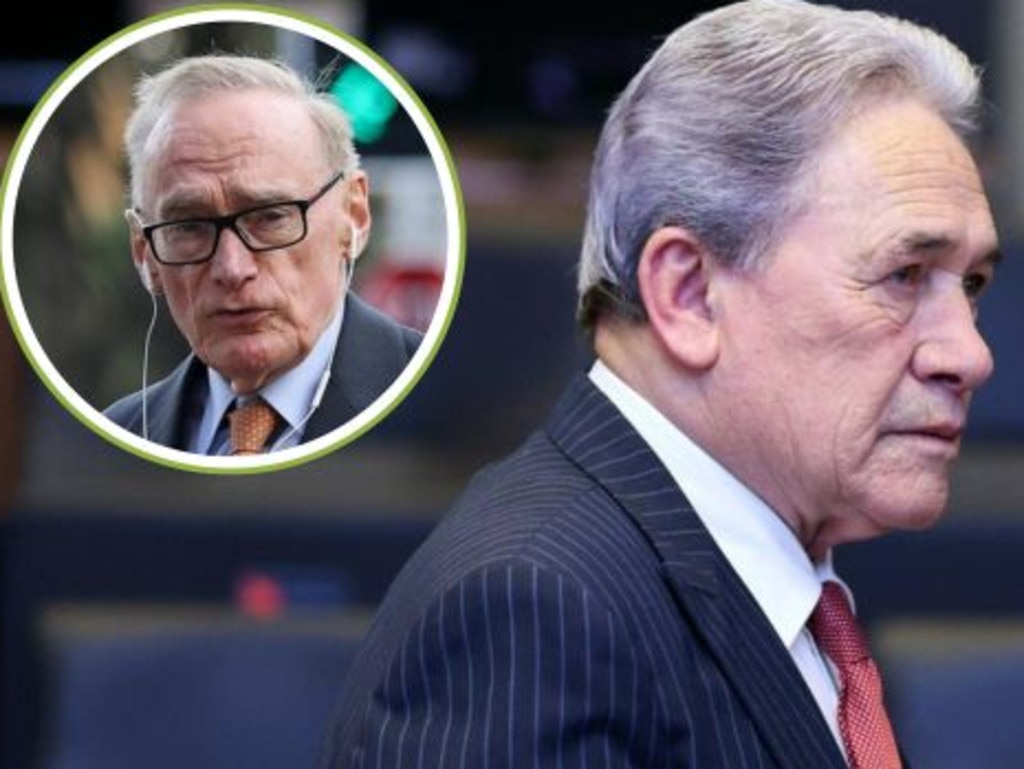

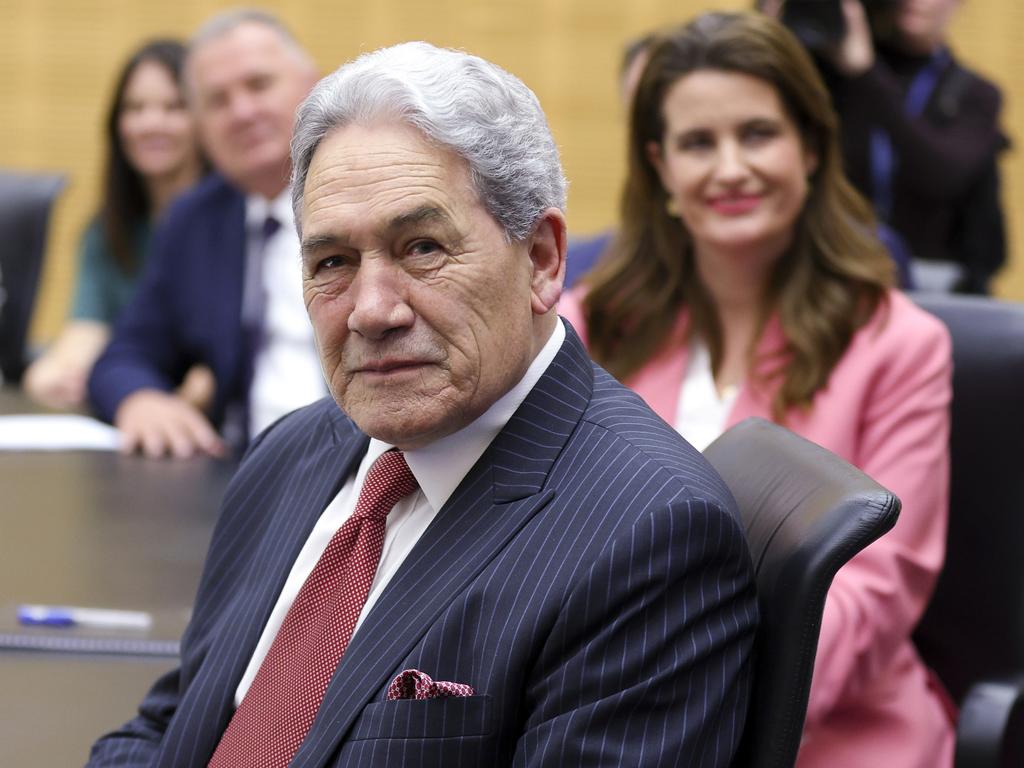


In the backwash of debate on AUKUS membership in New Zealand, fresh bombs are being frantically hurled over the Tasman Sea between Deputy Prime Minister Winston Peters and former Labor minister Bob Carr.